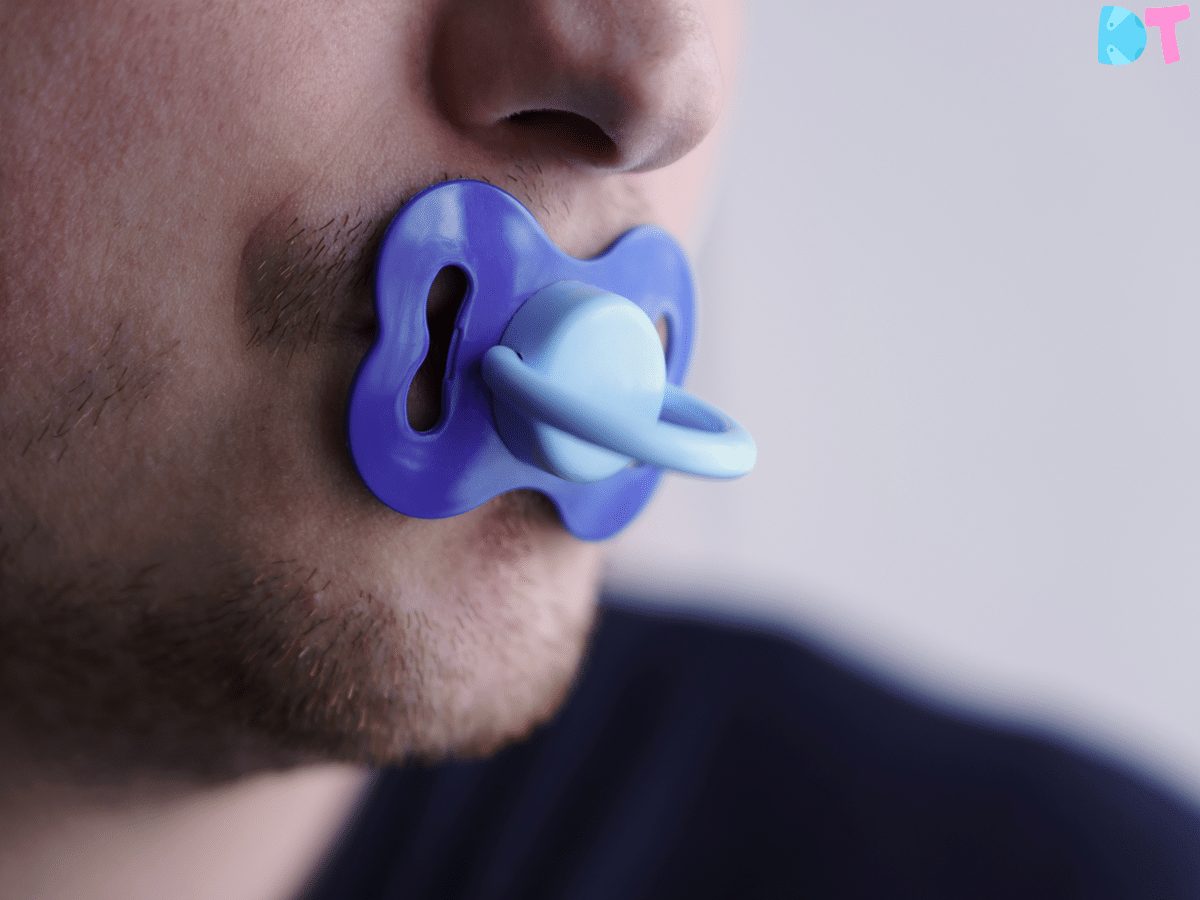If you have recently come across your teenager using a pacifier, you may be wondering why this is and how you can help. There are several reasons teenagers use pacifiers, and while some may be cause for concern, most of the time the use of a pacifier is benign. Below, we’ve listed some of the reasons you may find your teen with a pacifier. We’ve also included some suggestions for actions you can take if required.
First off, we want you to know that you are already doing the right thing by seeking out information that will help you better understand your teen. Approaching this topic requires sensitivity, as pacifier use at older ages is often misunderstood and your teen could already be dealing with feelings of shame based on societal expectations. Continue doing your best to keep an open mind and you will find that your teen may just open up more easily so that you can address their pacifier use in a calm, empathic manner.
Reasons for Pacifier Use in Adolescence
1) Coping Mechanism for Stress 
Your teen may be encountering stressful situations, either at home or at school, perhaps with friends or with teachers or with family. Just as adults engage in different coping mechanisms, your child may be finding that the use of a pacifier helps to ease tension and stress. The act of suckling is entirely primal, and your teen may find this action comforting. When your teen was a baby, suckling meant sustenance – and often safety and comfort while being held in the arms of caretakers. Sucking on a pacifier may help to recreate that sense of safety and security that your teen seeks. Although using a pacifier past childhood is often misjudged, misunderstood, and societally disapproved of, this is an opportunity for you to connect with your teen and better understand his or her needs.
How You Can Help
Engage with your teen when you are both in a good emotional headspace. Attempting to have a delicate conversation when you or your teen is stressed or unfocused can result in difficulty expressing thoughts, which can lead to stress, frustration, and even resentment. When you have confirmed that you are both in a good place to discuss the topic, ask your teen why he or she is choosing pacifier use. Make sure to communicate that all you are seeking is understanding and that you are available to assist should they require it.
2) Sleeping Aide
Pacifiers, because of their ability to offer comfort, can also be used as a sleeping aide to help people relax and slip into deep sleep. Your teen may not be stressed out or feeling pressured, as discussed above, but may be using a pacifier to self-soothe and offer comfort and relaxation before bedtime. So long as there is no underlying reason (e.g., stress, as mentioned above) that is causing your teen to seek comfort, this is a harmless self-soothing activity. Like other acts adults engage in – drinking chamomile tea or taking a sleeping pill – the use of a pacifier is just helping your teen get the kind of rest he or she needs to tackle each day with energy.
Suggested Reading: Picking the Perfect ABDL Pacifier!
How You Can Help
The most important thing you can do is create open dialogue and allow your teen to feel safe when addressing the topic. If, after offering a safe and open-minded discussion, you determine that your teen is not feeling any overwhelming stress and is not being bullied or feeling pressure from peers or others, you can rest easy – just like you teen.
The idea is to stay alert and ensure your teen does not need extra support for managing stress. If your teen expresses that the use of the pacifier is purely for comfort and relaxation, you can continue to allow the harmless activity that brings your teen comfort (and good sleep!).
3) Paraphilic Infantilism
Paraphilic infantilism is a type of sexual fetish that involves regressing into childlike play and activities. Those who are into this fetish enjoy being treated and cared for as if they were a baby or toddler and often engage in the use of pacifiers and diapers. These activities often result in sexual gratification, but there are some people who enjoy the regression without associating it with sexual gratification.
How You Can Help
Keep emotions at bay and continue to seek understanding. This fetish is not all that uncommon and can be realized healthily with partners that share the similar draw towards childlike behaviors. However, regressing into childlike behaviors can be due to underlying issues other than an innocuous fetish, such as prior trauma. If you notice that your teen does not feel comfortable opening up about this topic, consider connecting him or her with a therapist.
This fetish can be enjoyed in a healthy manner, even into adulthood, so long as any underlying issues are addressed. It is important to keep your teen’s overall wellness at the forefront of your mind and to consider that he may just be enjoying himself.
Suggested Reading: Understanding Littlespace: The Ultimate Guide for Newbies!
4) Drug Use
This reason is cause for concern. If your teen is exhibiting other behaviors, like sneaking out of the house and behaving erratically, drug use may be the reason. Pacifiers are sometimes used in club settings to offset the teeth grinding effects of some hard drugs.
How You Can Help
A therapist should be consulted at this stage – along with some other form of intervention, as drug use can easily get out of control. If things have gotten out of hand at home, you will need to employ some professional assistance to get your teen onto a better path.
Conclusion for Teen with Pacifier
If your teen communicates that pacifier use is for comfort, inquire about stress levels at school and perhaps any pressure from peers or teachers which may be creating stress for your teen. If they simply enjoy the use of it, there’s nothing to address and no reason to stop it. Ultimately, the goal is for your teen to feel safe, secure, and comforted. A conversation with you can go a long way to help, though you may find that your teen will best benefit from counseling. If your teen is struggling emotionally, connecting with a therapist would be a positive step toward helping your teen feel well.

